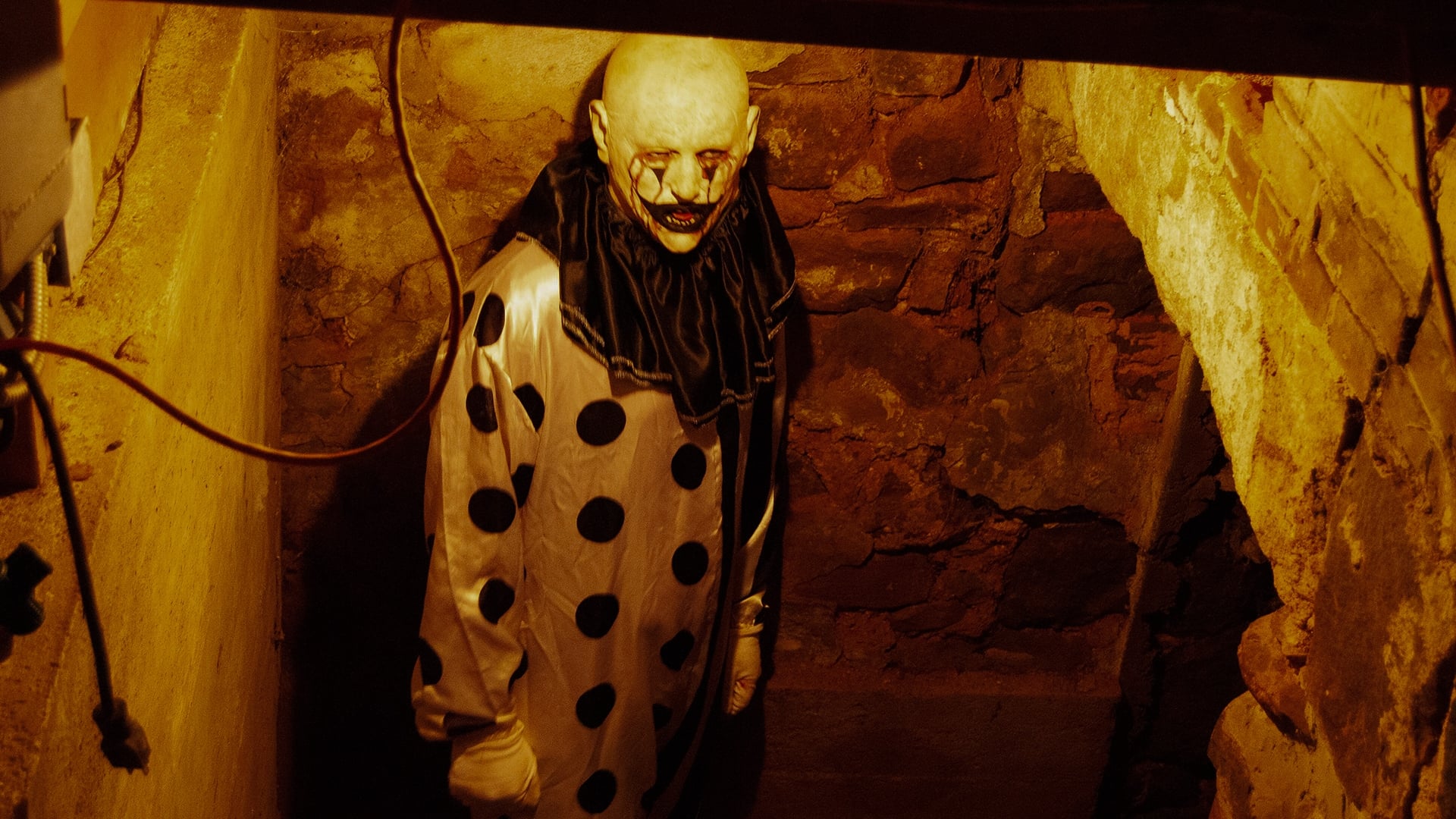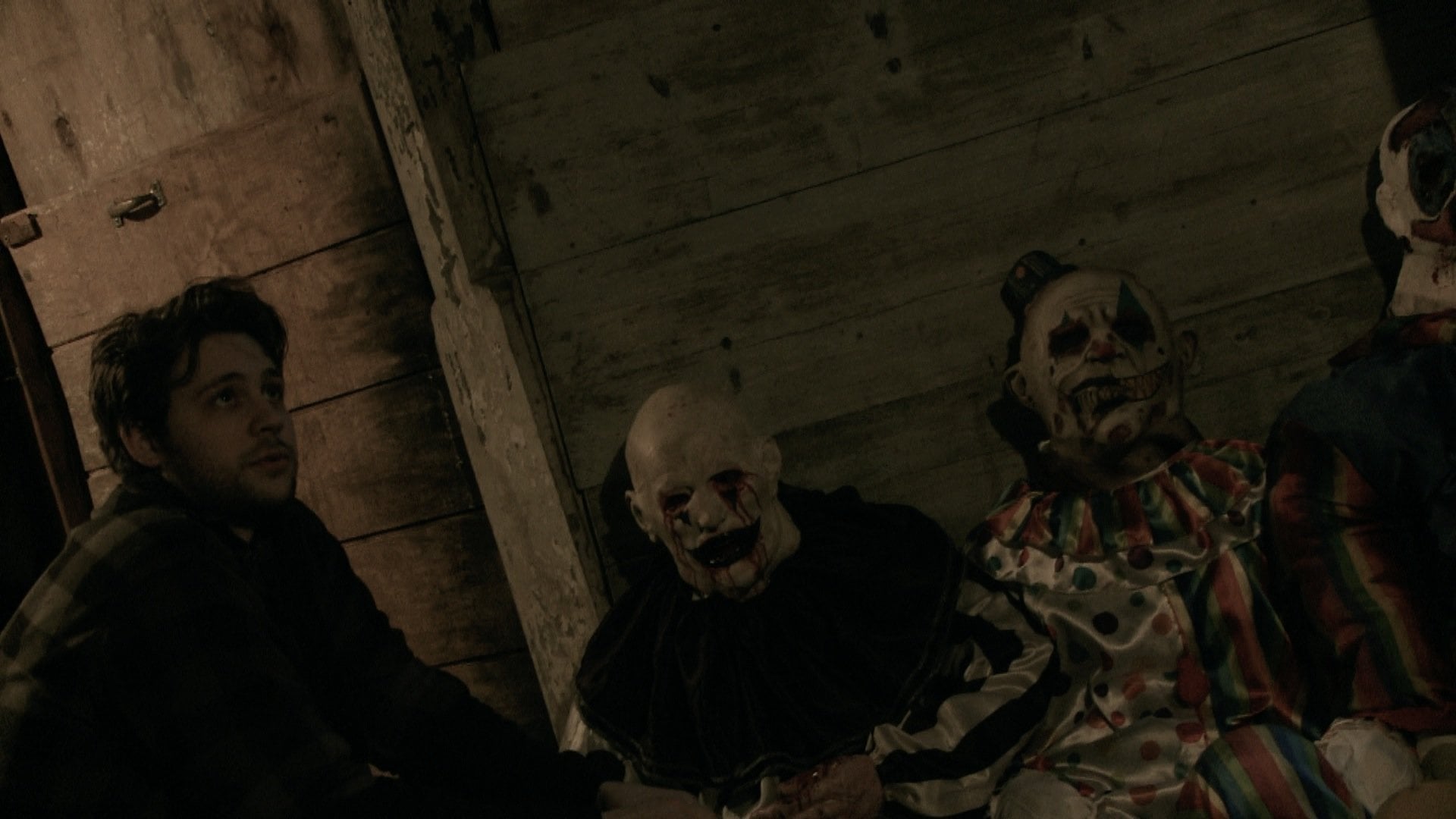
In Extremis: Hell House LLC and Haunted House Injuries
Disclaimer: Nobody knows what went on at the Abbadon Hotel. Cops, lawyers, even the families of the victims were left in the dark. But you don’t have to be! Before reading this article or incorporating your own haunted business, please seek independent legal advice. Also, watch the movie before this thing gets spoiled, like closing your eyes while you walk through the scary parts.
It's that ghastly time of year and your friends get the brilliant idea to open a haunted house. They think, “maybe at that old abandoned hotel named after an archangel of the abyss and a place of destruction would be a good location.” What could go wrong? When suddenly the most horrifying thought crosses your mind: Should we create a partnership or a corporation to insulate us from liability?
Hell House LLC (2015) is the first of a trilogy of films written and directed by Stephen Cognetti, about a particularly haunted hotel that people keep trying to turn into a haunted attraction. Early in the first film, we learn that 15 tour-goers and staff died on opening night, which is kind of a bad start to your business. We learn throughout the series that they were killed by malicious cultists, ghosts, and one continuously creepy clown, and the series somehow ends with a portal to heaven or hell…this series is a lot. What I was most curious about, as most audience members would be, is who is going to get sued following this spookshow snafu.

Unsurprisingly, people are frequently injured in haunted houses. In many situations patrons may slip and fall in the dark, be battered (touched) by the performers, experience carbon monoxide poisoning if the attraction is not properly ventilated and using chemical fog, or may cut themselves on an exposed nail or prop.(1) One recent incident involved a performer using a real knife that they were not authorized to use and “accidentally” stabbing an 11-year-old boy in the foot.(2) The performer was charged with negligent assault.(3)
If someone were injured during a tour, does it result in a slam dunk lawsuit? Maybe not. Haunted houses are often protected by implied or explicit waivers. An implied waiver is as it sounds—you voluntarily assume the risk of entering a haunted house that could be dark or could lead to certain injuries. If there is, for example, a sign that says “Warning: Strobe lighting and other intense lighting will be used in this attraction. It will not be safe for those with epilepsy and other conditions with sensitivity to light”, then a lawsuit related to injury from the strobe effect is unlikely to be successful as you would reasonably foresee the potential hazard and were warned.
An express waiver may include signing a waiver document that could waive your right to sue for any injury from actions or inaction and will indemnify (compensate for harm or loss) and hold harmless the company or individual owners of the haunted house if there is an injury, death, etc. Waivers have to be very specific to be upheld by the court, as you are signing away your ability to recover if something catastrophic happens to you. In New York, where Hell House LLC takes place, a party can waive ordinary negligence, but not gross negligence, reckless conduct, willful/wanton conduct, or intentional acts.(4)
In Hell House LLC, it is quickly dismissed that the cause of the deaths could be a gas leak. A gas leak might be an example of negligence if it was reasonably foreseeable by the owners of the building. The deaths were instead the result of intentional actions of cultists/ghosts. The court would likely consider these “third-party rogues.” The owners of the Hell House are dead anyway; but if they weren’t or the company's shares passed to their loved ones, it is unlikely that they would be sued effectively.
The owners could be vicariously liable for the actions of their employees that are within the scope of their employment. For example if one of their employees touched someone while scaring them, and touching was allowed in that particular haunted house, the owners might be effectively sued if it resulted in an injury. However, if third parties who are not employed by the attraction attack you, it is unlikely any court would find the owners responsible as they could not have foreseen or controlled the actions of these surprise ghouls. A court has never had to consider whether owning a haunted house constitutes being liable for the actions of ghosts within, but I would hazard no since ghosts are independent of spirit.
Ultimately, Hell House LLC would likely be protected in a lawsuit. The owners may be sued personally if they are alive and committed wrongdoing independent of their company, but they may be protected by the “corporate veil.” You usually have to sue the company before the individual owner, and Hell House LLC might not have a lot of money to take in a wrongful death claim—their insurance however may be able to cover some of the claims.

The Hell House trilogy is a fun series if you enjoy found footage films. While the films go off the rails, unlike a horror attraction, it is better when that happens. The films will also leave you with a lot of questions—like how do I get off this ride? I would rank them as follows:
- Hell House LLC 3/5
- Hell House LLC III: Lake of Fire (THIS IS BONKERS) 3/5
- Hell House LLC II: The Abaddon Hotel 2/5.
The legal realism of all these films is very low. We never get a conversation about incorporation, see the waiver, and apparently the police and lawyers never uncover conclusive evidence. This is impossible, because where there is a catastrophic “accident,” there is a lawyer ready to represent YOU. If you are injured in a haunted house, you will want to quickly contact the manager, fill out an incident report, collect any evidence or photos of your injury and/or the hazard, and potentially speak to a lawyer before giving any statement to an insurance claims adjuster.
So this Halloween, why don’t you get out there and responsibly enjoy a haunted house—and bring your phone just in case you need to collect some evidence.
- Gueli, Charles R. “Haunted House Injury Claims: Get the Compensation You Deserve.” Injury Claim Coach, November 5, 2020. www.injuryclaimcoach.com/haunted-house-claims.html. Accessed online October 20, 2021.
- Elassar, Alaa. “A Haunted House Actor Stabbed an 11-Year-Old Boy's Foot While Trying to Scare Him.” CNN. Cable News Network, September 25, 2021. www.cnn.com/2021/09/25/us/haunted-house-actor-stabs-11-year-old-ohio/index.html. Accessed online October 20, 2021.
- § 131.03 (2903.14) NEGLIGENT ASSAULT (A) No person shall negligently, by means of a deadly weapon or dangerous ordnance as defined in section 2923.11 of the Revised Code, cause physical harm to another or to another's unborn. (B) Whoever violates this section is guilty of negligent assault, a misdemeanour of the third degree. Accessed online October 20, 2021.
- Bernstein, Lauren, and Danielle Marlow. “Absolution Denied? the Enforceability of Liability Waivers in the Age of Covid-19.” JD Supra. Morritt Hock & Hamroff LLP for JD Supra, July 28, 2020. www.jdsupra.com/legalnews/absolution-denied-the-enforceability-of-59841/. Accessed online October 20, 2021.
See Kalisch-Jarcho v. City of New York, 58 N.Y.2d 377 (1983); see also Restatement (Second) of Contracts § 195 (1981) (“A term exempting a party from tort liability for harm caused intentionally or recklessly is unenforceable on grounds of public policy.”). Conduct is grossly negligent if it “differs in kind, not only degree, from claims of ordinary negligence. It is conduct that evinces a reckless disregard for the rights of others or ‘smacks’ of intentional wrongdoing.” Colnaghi, U.S.A., Ltd. v. Jewelers Protection Services, Ltd., 81 N.Y.2d 821 (1983)

